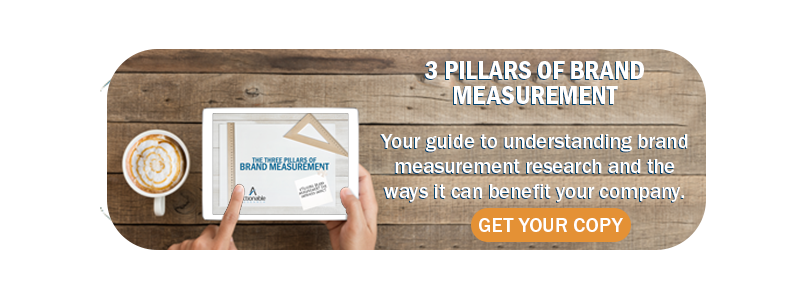
May 19, 2017 9:01:35 AM
In contrast to quantitative research studies, which are often designed with a pre-formed hypothesis in mind, qualitative research studies are developed from a pretty open mindset. Qualitative research is about casting your net deeply, rather than widely.
The mission is to find qualified participants who can speak comprehensively about their experience with a product, service, or company to provide insights into the brand perception, purchasing decisions, product performance, or any other relevant impressions they may hold.
While results from qualitative research alone can certainly yield beneficial information for companies, if the goal is to reach statistically significant conclusions on these findings, it would be necessary to a perform a quantitative follow-up study, utilizing the qualitative findings in the design.
Below are a few examples of information that can be gained through qualitative research which will aid in the development of a quantitative follow-up study.
Audience Perspective
Imagine the kind of information you can gain when you have the chance to ask questions like, “How do you feel about that?”, “Why did you answer that way?”, or “How does that impact you?” When followed by a 3-minute response, you could find out whether a particular issue does or doesn’t impact that audience member, in what ways, and how meaningful that impact is to them.
Qualitative studies allow for this opportunity, while chances are you couldn’t get such insightful answers from a quantitative study, simply because information flows more naturally in a conversation than in an online survey.
Once you have that information though, you can examine it for trends, find like responses, and use it to shape your quant survey, helping you confirm that this is a statistically significant point for your wider audience.
Questions You Didn’t Know to Ask
We consistently gain knowledge from qualitative research that our clients wouldn’t have even thought to ask about, particularly with our clients who work in very complex and technical fields. One of the reasons is a solid grasp on strong interview guide creation, built from thorough industry comprehension and an awareness of which inquiries gain insights beyond the basic. Another is years of experience in deep-dive interview probing with highly skilled interviewers. Both are essential to getting answers to the questions that ultimately matter most.
Conversations with the right audience – every day users of a product or service with intimate knowledge of functions, pain points, and solutions, help to give our researchers and clients a more familiar look at the audience experience. This information helps to form hypotheses that can be tested in a quantitative study.
Terminology – Talking the Talk
An oft-underestimated key takeaway from the new information learned through qualitative research can be the terminology audience members are using today.
Having knowledge of the daily terminology surrounding a product or service allows us to develop well-worded quantitative questions that are clear to your audience, limiting the possibility of respondent confusion. Being able to ‘talk the talk’ also makes respondents feel more at ease and, in turn, makes them more likely to respond favorably and give your survey careful attention.
The Next Step: Consulting with the Experts (YOU!)
While we have years and years of experience in the medical and dental, digital technology, and consumer products and services fields, we aren’t perhaps (yet) experts in your specific product or service offering. To gain expertise, we use a combination of qualitative research and deep-dive discussions with our clients to help us get a deeper understanding of their place in the market, their struggles and successes, their questions and curiosities.
When we write a survey, we always consult with our clients for guidance on the specifics of their marketplace. Our specialty is in taking your input and developing studies that will develop the insights you need to answer the hard questions.
The Takeaway
Qualitative research can provide outstanding insights as a standalone study, but data from qual studies can also help to guide the quantitative research process. Actionable Research works with our clients in a consultative environment to develop study methodologies built on their unique needs, quant, qual, or in combination with each other. To learn more about marketing insights, qualitative research, and focus group moderation, keep your eye out for more information on our upcoming webinar.

